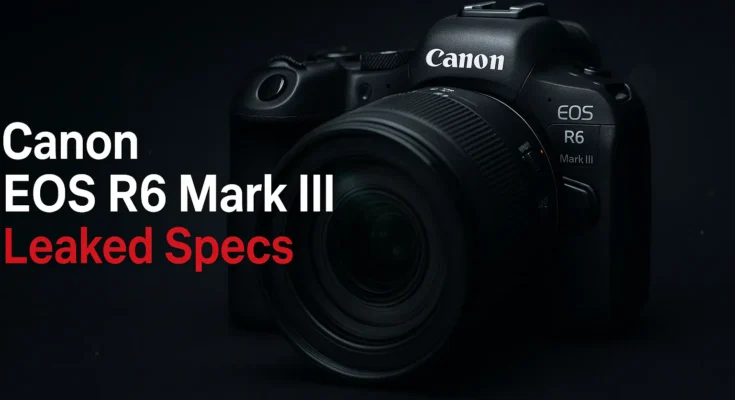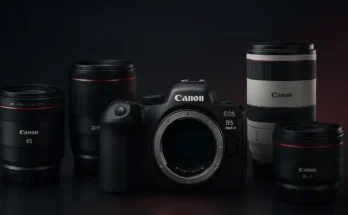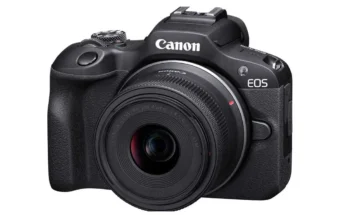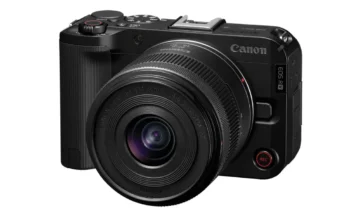The upcoming Canon EOS R6 Mark III, which is slated to launch on 6 November and ship shortly after, is shaping up to be the next key player in Canon’s full-frame mirrorless lineup. Early indications suggest Canon intends to keep the price under US $3,000, hitting around the €2,899 / $2,899 mark.
Canon EOS R6 Mark III Confirmed Specifications
Based on a reliable source, the following specs appear to be locked in:
-
A full-frame sensor delivering 34.2 MP (or 32 MP effective) — reportedly the same sensor used in the cinema-oriented C50.
-
Canon’s Dual Pixel CMOS AF II autofocus with multiple subject-detection modes.
-
In-body image stabilization (IBIS) rated up to 6.5 stops of shake correction.
-
Pre-capture capability (i.e., buffering just before shutter release) and a top electronic shutter burst rate of 40 fps.
-
Native ISO ceiling of 64,000.
-
Launch pricing: ~€2,899 / US $2,899; shipping expected late November (tentative).
These confirmed figures show that Canon is focussed on refining the performance of its 6-series rather than radically reinventing it.
Also Read: Canon EOS R6 Mark III and Four New RF Lenses Expected to Launch in November 2025
Unconfirmed / Rumoured Features
Beyond what’s been confirmed, the following items remain in the “leaked” or “good-source says” category — meaning they should be treated as provisional:
-
Dual UHS-II SD card slots (rather than CFexpress only).
-
A full-size HDMI port (rather than a micro-HDMI).
-
Use of the LP-E6P battery (with partial compatibility with earlier LP-E6 series batteries).
-
CLog 3 support for advanced videographers.
-
A flip-out / vari-angle 3″ LCD (though using a familiar mechanism).
-
A 5.76-million-dot EVF at ~0.76x magnification.
-
A “DIGIC Accelerator” co-processor to boost responsiveness.
-
Passive venting (rather than active cooling) for video operation.
-
But note: dynamic-range may not match the claimed “16-stop” range of the Cinema EOS C50.
If these features hold true, they would make the R6 Mark III more versatile for hybrid photo/video creators — particularly card slot flexibility, full-size HDMI, improved AF and burst speeds.
What This Means
-
This new model appears designed to bridge the gap between enthusiast and pro levels: offering meaningful upgrades in speed, sensor resolution and AF, while retaining accessible pricing.
-
The move to ~32-34 MP from earlier 24 MP-class sensors gives more resolution headroom for cropping and high-detail work.
-
The 40 fps electronic shutter burst rate would be very competitive for action, wildlife and sports shooters.
-
Dual card slots (if real) cater to pros worried about backup, redundancy and flexible workflow.
-
The under-$3,000 price tag suggests Canon intends this camera to be a high-volume seller in its 6-series line. The article notes the 6-series has been Canon’s best-selling full-frame body and likely will continue to be so.
Key Questions & What to Watch
-
Will the final real-world dynamic range (DR) approach pro-level expectations, or is Canon holding back that headroom?
-
How large will the jump in AF-tracking performance be compared with the R6 Mark II and rivals from Nikon/Sony?
-
Does the camera truly deliver full-size HDMI and dual SD slots — items which often separate enthusiast vs pro gear?
-
What are the full video codecs, internal/externals specs, and cooling behaviour (especially given passive venting)?
-
Will the mechanical shutter remain included (for situations where rolling-shutter matters) — the article implies there is no indication Canon is dropping it.
While the forthcoming EOS R6 Mark III may not revolutionize the full-frame mirrorless category, it appears to be a very logical and impactful upgrade within Canon’s lineup. The combination of higher resolution, faster burst, stronger AF, robust stabilization and smart workflow features (if the leaks are accurate) make it a compelling choice for photographers and hybrid creators. And doing so with a sub-$3,000 price tag keeps it commercially positioned for broad appeal.
If you’re in the market for a full-frame mirrorless camera that hits a sweet spot of performance + value, this model is one to keep an eye on. More detailed specs and real-world testing will follow once Canon officially announces the camera.




